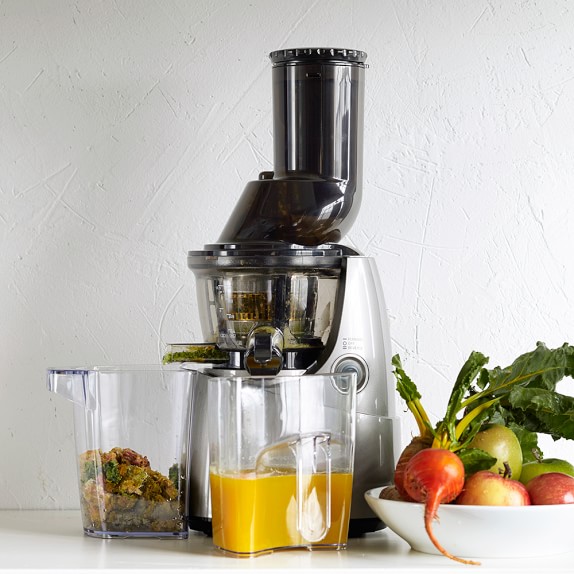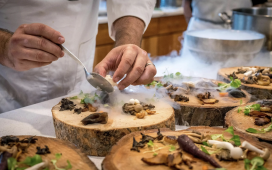Table Of Contents
Do you have a blender and are you looking for delicious juice recipes? Then you have come to the right place because on this page we present our recipes for fresh raw juice. The preparation is carried out gently in the cold juicer, ie the raw ingredients are not heated, which helps to protect the nutrients it contains. All juices are quickly prepared and taste really delicious. The best thing is not to hesitate long, just to get started.
Learn More About The Juicer for Kale and Spinach.
Juices with fruits and vegetables
Fennel ginger shot
Hot hot hot, that’s the way it should be. The fennel ginger shot is very hot, it cleans up properly from autumn to spring.
Celery Grapefruit Orange Rosemary Juice
Another and above all simple recipe for celery juice, which promises variety when juicing and is quickly implemented.
Celery turmeric juice
Fresh celery juice can be prepared in countless variations. Here is a very simple recipe that promises variety with juicing and is also quickly implemented.
Also read our Vitamix 5200 review here.
Celery pomegranate juice
Perennial celery is a versatile juice ingredient that can be combined with other foods. With this recipe we would like to present a great variant.
Pomegranate chard with vanilla note juice
There are countless foods that are suitable for juicing. This includes the leaves of the Swiss chard, which we combine with pomegranate and carrot in this recipe.
Chicory pomegranate coriander juice
At first glance, the ingredients combined in this recipe may not really fit together. But the juice result speaks for itself.
Pumpkin pear alfalfa sprouts juice
Alfalfa sprouts are undoubtedly an ingredient that rarely comes into the blender. Experimented diligently and combined the sprouts with other ingredients. The result is this delicious juice.
Pumpkin kale pear juice
Some ingredients are only very rarely juiced, although they are ideal for this – this includes the pumpkin. Try it out and let yourself be surprised.
Papaya celery apple juice
Not only papaya but also the kernels can be juiced. These bring sharpness to the juice.
Pineapple cucumber rosemary juice
With pineapple and grapefruit, we use two exotic fruits, which we supplement with local cucumber and rosemary. Sounds unusual, but brings a great change to the kitchen.
Apple carrot ginger lemon juice
A real classic that should definitely be tried out. Tastes delicious and is also a good supplier of vitamin C and many other nutrients.
Pineapple lime spinach juice
Really tasty! A green juice that doesn’t taste green at all – ideal for anyone who dares to tackle this topic or would like to surprise their loved ones with a blind tasting.
Apple celery spinach juice
The ideal recipe for entry into the world of green juices. Refreshingly lively in taste, yet so green.
Apple beetroot cucumber juice
Juicing beetroot? No problem at all – and, by the way, not earthy at all! Be sure to try this juice recipe.
Fennel turmeric orange juice
The ideal juice for the cold period. With its ingredients, it provides exactly the nutrients that the body’s defenses can use well.
Juice the nettle leaves together with a delicious melon. It’s quick, it’s productive and the taste is really pure.
Be creative and develop your own juice recipes
Many blender owners don’t dare to go beyond classic recipes like apple and carrot. There is so much more to discover.
Whether juice or smoothie, I always try to accommodate several flavors, only then will the result be harmonious in taste. Frequently, all flavors are represented in the juice.
From this list, you can get a feel for it, if a juice tastes stale or something that tastes too much how we can spice it up. It also depends on personal preferences. If it can still taste bitter or we have got used to a taste, we change the dose.
Target the taste
There are ingredients that can save our stale or inedible juice with a few drops or a few needles or leaves.
For example the lemon. It gives the juice more depth, especially if we use a small piece with a bowl (of course, organic, if with a bowl).
Bitter in the juice is well concealed with the sharpness of the ginger. It is best to choose a fruit that produces a thick, rich juice, such as mango, persimmon or pear. The celery salty can also help. A little piece and combines all the ingredients.
Earthy, like the beetroot, is ideal for combining with all directions – lemon, grapefruit, some ginger, some celery and if you really want to enjoy it sweetly, take a small piece of cucumber. With little pear or apple, of course, it will be a treat. Beetroot is a root bulb that can take almost anything – all flavors fit in one here.
The fennel bulb is idiosyncratic with its taste reminiscent of eucalyptus. Nevertheless, in combination with other vegetables and fruits, it brings fantastic surprises. Here we recommend combining with only a few ingredients.
The chicory is also a surprise – try experimenting with it. The slightly bitter can be well concealed with lemon and pomegranate, maybe a hint of spice.
In general, I would also like to emphasize the lemon again, it makes a lot of fruity, not sour, also a good all-rounder.
Also, a big surprise is papaya – a very good filling and mild fruit that can be combined very well. Their sharp grains can also be used, they are very healthy.
Another tip – use fresh herbs and spices: rosemary, thyme, tarragon, lemon balm, licorice root, coriander, basil, turmeric, pepper, ginger, cinnamon or vanilla. Likewise, everything that contains essential oils. But be careful, as 2 needles or 3 leaves are often enough.
So we can change our usual juice slightly, for sure you will be braver then. Regardless of the taste, herbs bring additional useful effects.
Origin and ecological balance of the juice ingredients
The ecological balance of our occasionally used fruits could be better. That is why we would like to encourage our readers and customers to rarely buy exotic fruits and to opt for regional products instead. With such consumer behavior, we can make a big difference.
To make a change every now and then, I buy a pineapple twice a year. I use this for several recipes, as do I with the persimmon or papaya. With the recipes shown here, I wanted to show possibilities and create new suggestions.






